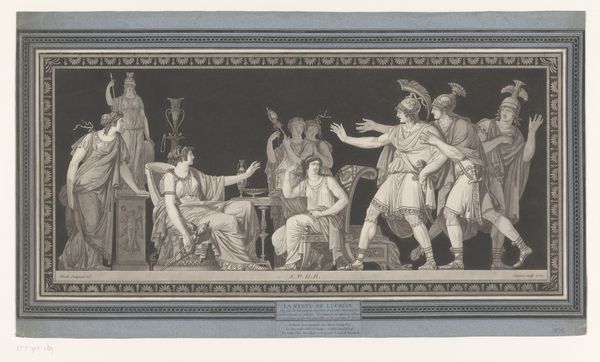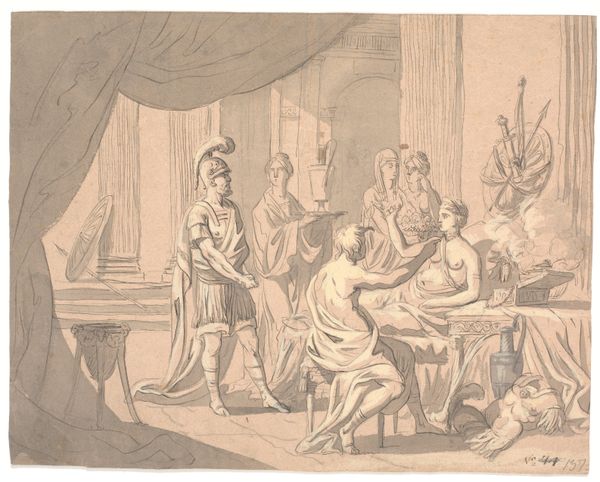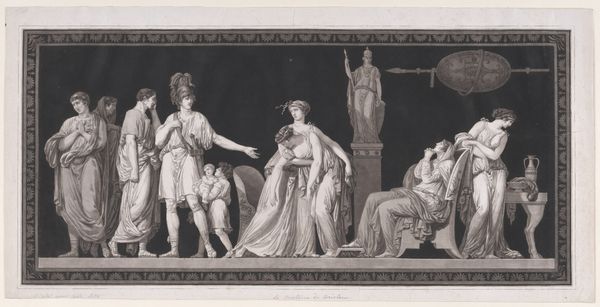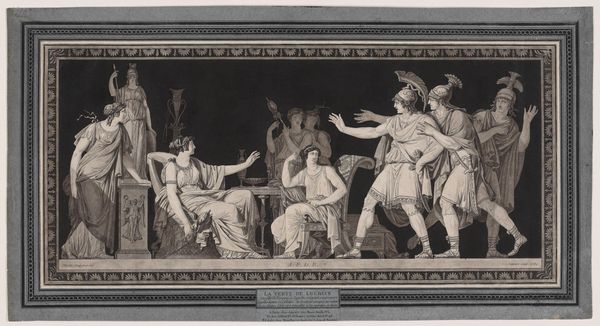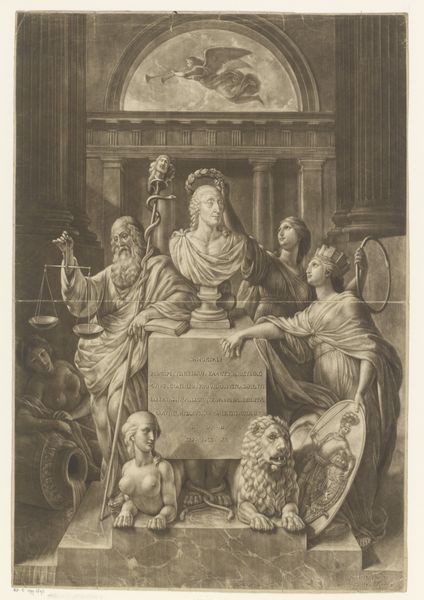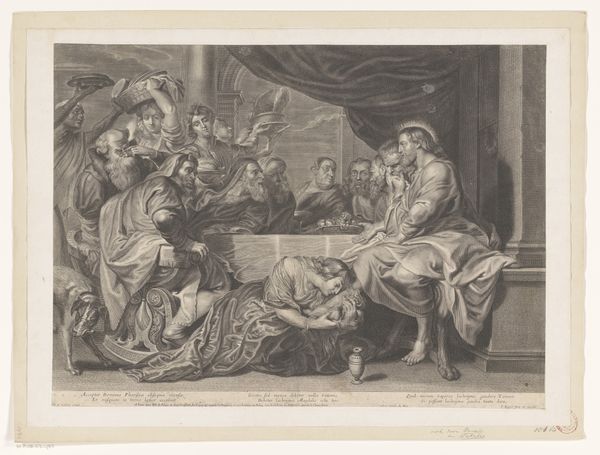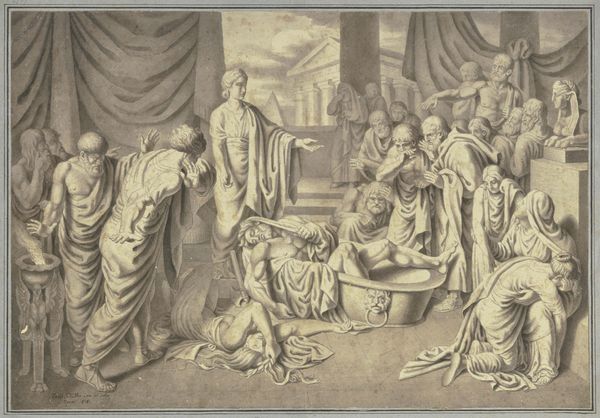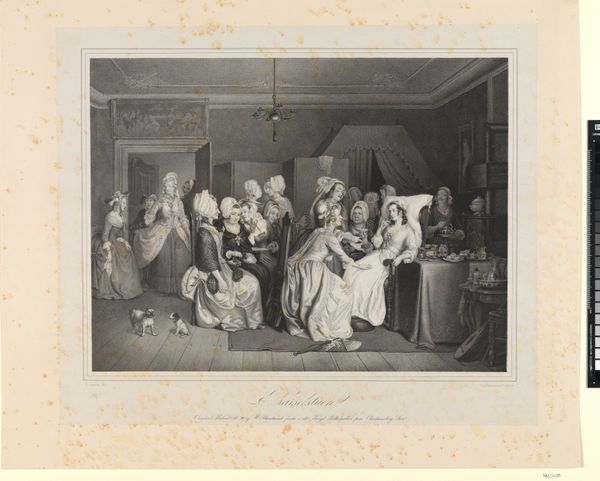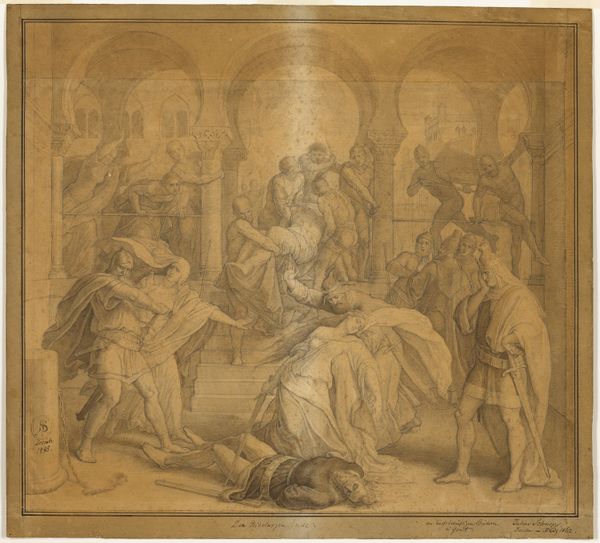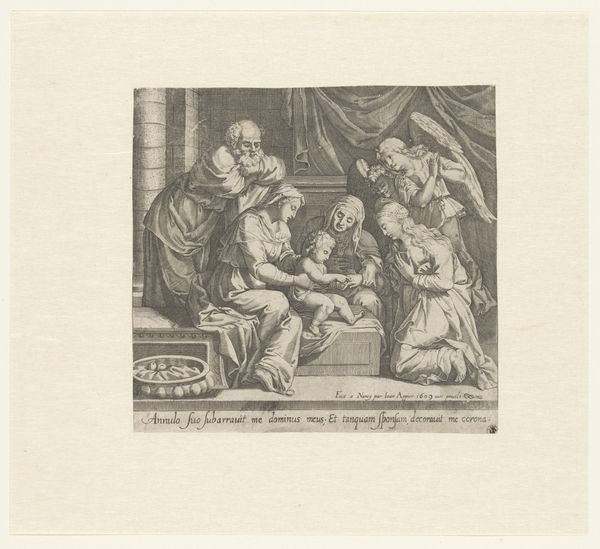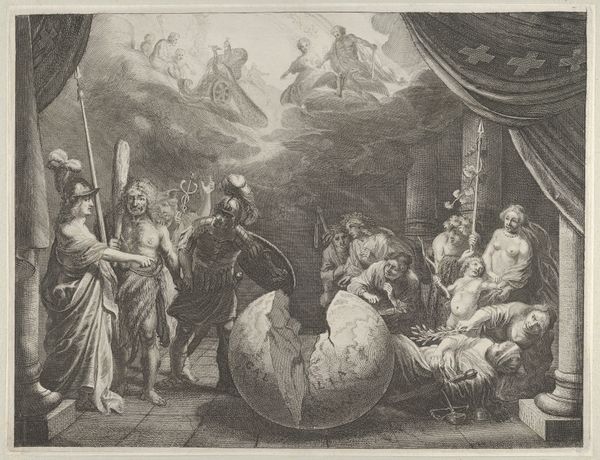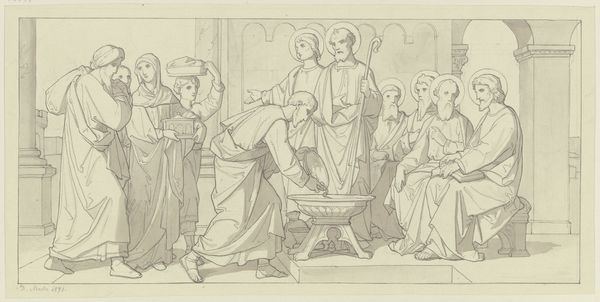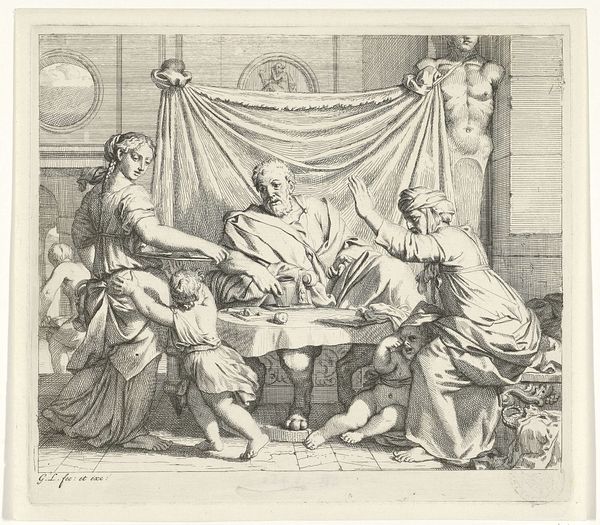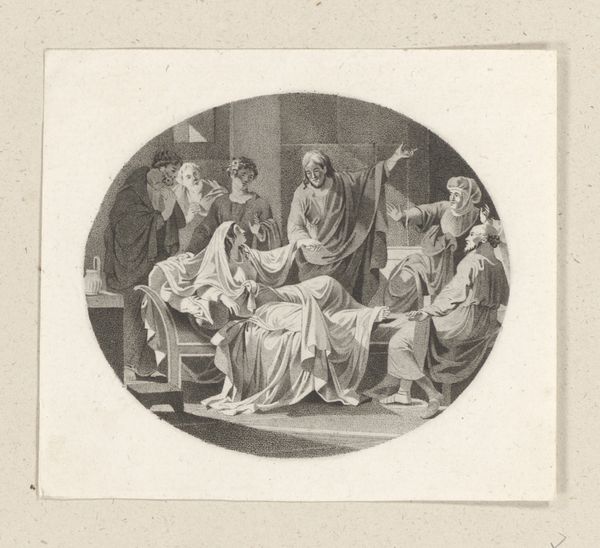
The Discovery of the Catilinarian Conspiracy 1792
0:00
0:00
drawing, print, etching
#
drawing
#
neoclacissism
#
allegory
# print
#
etching
#
historical fashion
#
history-painting
Dimensions: Sheet: 13 3/16 × 23 7/16 in. (33.5 × 59.5 cm) Plate: 9 13/16 × 20 1/2 in. (25 × 52 cm)
Copyright: Public Domain
Curator: This print, made in 1792, is entitled *The Discovery of the Catilinarian Conspiracy*, etched by Jean François Janinet. It reminds me of those theatrical friezes depicting ancient drama! Editor: It does, doesn’t it? Almost a tableau vivant frozen in time. And the cool grayscale palette definitely enhances that sense of antiquity, lending it a sort of timeless gravity, wouldn’t you say? But, the real drama stems from this historical moment that highlights themes of betrayal and political upheaval, all set against a backdrop of power. Curator: Right! It depicts a key moment in Roman history: Cicero exposing Catiline's plot to overthrow the Roman Republic. Janinet captures that tension beautifully. There is Cicero mid-oration, with those conspirators caught between feigned innocence and simmering guilt. Do you get a sense of the unease that Cicero would have been speaking truth to? Editor: Absolutely, especially through the body language. Notice the way those figures are clustered, almost like they’re huddling for comfort—or perhaps plotting their escape! The artist uses their positioning, as well as their facial expressions, to indicate underlying intentions or anxieties, giving it that neoclassical emotional restraint, of course, but allowing the historical narrative to be front and center. Curator: Yes, and he positions Cicero with so much intention: his figure is lit brighter and is more centered than Catiline’s supporters, highlighting not only Cicero’s physical positioning, but the central role of virtue in that exact historical moment! That light is a spotlight! What kind of assumptions would it allow us to make? Editor: That’s it, though—I find the visual strategy unsettling. The staging feels…almost too neat. While it is successful, does that also risk sanitizing the very real violence and fear associated with conspiracies? The classical forms sort of contain a narrative of social conflict. I can't say that I agree or disagree with how effective this visual representation might have been. Curator: Hmm, I hadn’t thought of it quite that way before, I supposed I was just impressed with his technical mastery. Thanks for the different perspective! Editor: And thank you for always bringing these details to life for me! Looking closer has, I will admit, complicated my original, rather neat, first impression!
Comments
No comments
Be the first to comment and join the conversation on the ultimate creative platform.
